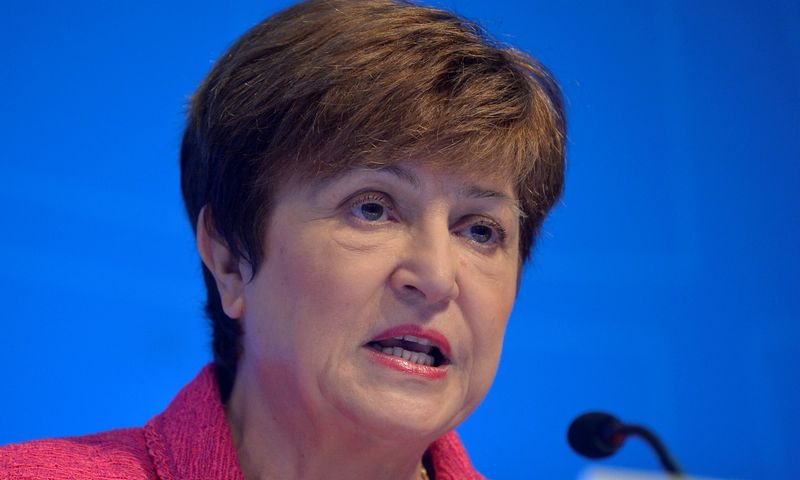By Andrea Shalal
WASHINGTON (Reuters) -The IMF will distribute about $650 billion in new Special Drawing Rights to its members on Monday, providing a "significant shot in the arm" for global efforts to combat the COVID-19 pandemic, Managing Director Kristalina Georgieva said.
The International Monetary Fund's largest-ever distribution of monetary reserves will provide additional liquidity for the global economy, supplementing member countries’ foreign exchange reserves and reducing their reliance on more expensive domestic or external debt, Georgieva said in a statement.
"The allocation is a significant shot in the arm for the world and, if used wisely, a unique opportunity to combat this unprecedented crisis," she said.
The IMF underscored its concerns about diverging trends in the global economy and said the new SDR allocation would allow richer countries to help those hit hard by the pandemic, while improving the outlook for the global economy.
Countries can use the SDR allocation to support their economies and step up their fight against the coronavirus crisis, but should not use the fiscal space to delay needed economic reforms or debt restructuring, the IMF said in separate guidance document.
IMF member countries will receive SDRs -- the fund's unit of exchange backed by dollars, euros, yen, sterling and yuan -- in proportion with their existing quota shareholdings in the fund.
Georgieva said about $275 billion of the allocation will go to emerging market and developing countries, with some $21 billion to flow to low-income countries.
The Fund last week suspended Afghanistan's access to IMF resources, including this SDR allocation, due to a lack of clarity over the country's government after the Taliban seized control of Kabul.
A lack of clarity among the international community over official government recognition in Venezuela kept Caracas locked out of the current allocation.
Though calls had been made to limit Belarusian access to SDRs, Alexander Lukashenko's hardline government has not been disavowed by enough IMF members and the Fund is allowing access.
SOURCE FOR ADDED SUPPORT
Georgieva said the IMF was encouraging rich countries that receive SDRs to channel them to poorer countries that need them more.
One key option is for wealthier countries to contribute SDRs to the IMF's existing Poverty Reduction and Growth Trust for low-income countries, she said.
The IMF was also continuing to work on a possible Resilience and Sustainability Trust that could use channeled SDRs to help the most vulnerable countries with structural transformation, including dealing with climate change, she said.
Another possibility, she said, could be to channel SDRs to support lending by multilateral development banks.

The IMF's last SDR distribution came in 2009 when member countries received $250 billion in SDR reserves to help ease the global financial crisis.
To spend their SDRs, countries would first have to exchange them for underlying hard currencies, requiring them to find a willing exchange partner country.